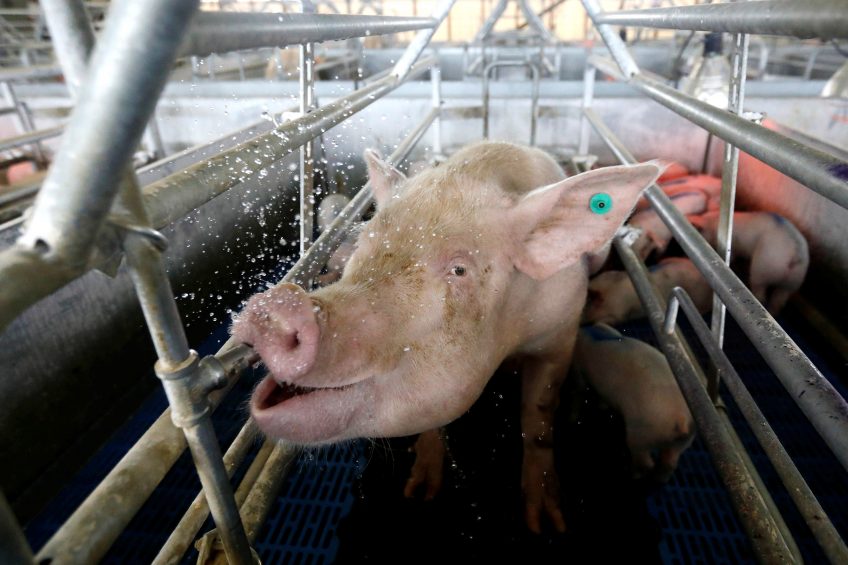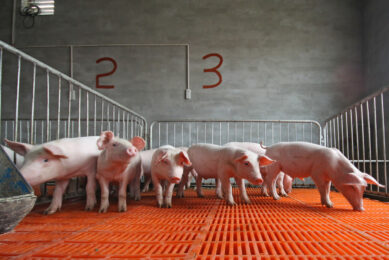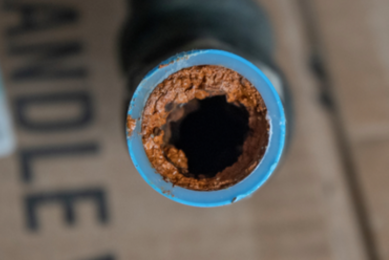Water: A basic need

The importance of water is unquestionable; it is the single nutrient which is required in the greatest quantity by animals.Stimulating water consumption is therefore necessary for achieving optimum performance.
Pigs need water for most metabolic functions, adjusting the body temperature, moving nutrients into the body tissues, removing metabolic waste, the production of milk, for growth and reproduction. Pigs consume the most water by drinking, but some water is also ingested in feed or generated through metabolism.
In contrast, they lose body water via urine, faeces, respiration and from the skin. This balance between water intake and water loss can be affected by several factors including health status, nutrition and the environment. Disease affected pigs require more water than healthy pigs of the same age and body weight. The increased water demands of an animal with a fever or water loss associated with diarrhoea, change the water requirements of a sick pig. This could be easily overlooked on commercial farms where increased water intake can be difficult for pigs in large, crowded pens or when water supply is intentionally restricted.












